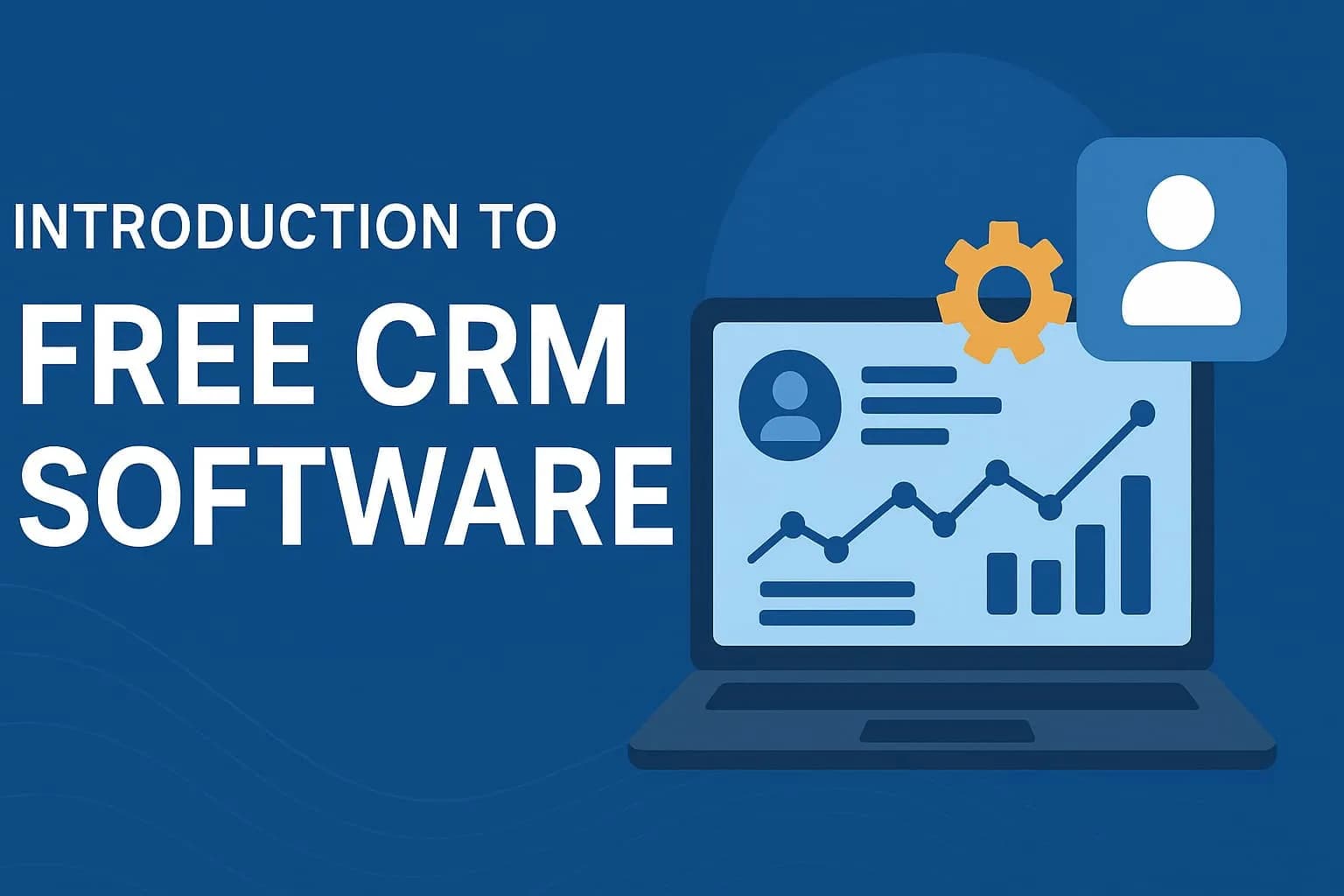Introduction to Free CRM Software
In 2025, managing customer relationships has become more critical than ever for businesses of all sizes. Customer Relationship Management (CRM) software helps streamline interactions, track leads, and boost sales without requiring a hefty investment. Free CRM options are particularly appealing for startups and small businesses looking to scale efficiently.
This article explores five of the best free CRM software available in 2025, based on recent reviews and comparisons from sources like CRM.org, Zapier, and PCMag. We'll cover key features, pros, cons, and how these tools integrate with digital marketing strategies. For more on the broader role of CRM in business, check out our related post: The Role of CRM in Business: Enhancing Customer Relationships and Driving Growth.
Whether you're in eCommerce, services, or tech, these tools can help you turn data into actionable insights. If you're interested in building your own CRM, see Tools to Build a CRM for no-code options.
1. HubSpot CRM
HubSpot CRM is a powerhouse in the free CRM space, offering unlimited users and up to 1,000,000 contacts. It's ideal for marketing-focused teams and integrates seamlessly with HubSpot's ecosystem.
Key Features:
- Contact management with detailed timelines and activity tracking.
- Email templates, scheduling, and tracking for personalized outreach.
- Deal pipelines with customizable stages and automation.
- Reporting dashboards for sales forecasting and performance metrics.
- Integration with over 1,000 apps, including Gmail, Outlook, and Slack.
- Live chat and chatbots for real-time customer engagement.
- Task management and reminders to keep teams organized.
Pros:
- User-friendly interface with no learning curve.
- Scalable for growing businesses; easy upgrade to paid plans.
- Strong focus on inbound marketing and lead nurturing.
Cons:
- Limited advanced reporting in the free version.
- Some features require paid add-ons for full functionality.
HubSpot excels in digital marketing automation. For a comparison with other tools, read Comparing HubSpot Marketing Hub, ActiveCampaign, and Mailchimp.
2. Zoho CRM
Zoho CRM's free edition supports up to 3 users and is packed with features for sales automation. It's part of the larger Zoho suite, making it versatile for integrated business operations.
Key Features:
- Lead and contact management with scoring and assignment rules.
- Sales automation workflows and process builder.
- Multichannel communication (email, phone, social media).
- Basic analytics and customizable reports.
- Integration with Zoho apps like Desk, Books, and Projects.
- Mobile app for on-the-go access.
- AI-powered assistant (Zia) for predictions and insights.
Pros:
- Highly customizable with drag-and-drop interfaces.
- Affordable scaling options for larger teams.
- Strong AI features even in the free plan.
Cons:
- Limited to 3 users in free version.
- Steep learning curve for advanced customizations.
Zoho is great for data-driven decisions; pair it with insights from The Role of Data Analytics in Digital Marketing Success.
3. Bitrix24
Bitrix24 offers unlimited users and contacts in its free plan, making it suitable for large teams. It combines CRM with project management and collaboration tools.
Key Features:
- Unlimited deals, contacts, and companies.
- Task and project management with Gantt charts.
- Built-in telephony and video conferencing.
- Email marketing and automation rules.
- Website builder and live chat widgets.
- HR tools like employee directories and time tracking.
- Mobile and desktop apps for accessibility.
Pros:
- All-in-one platform reduces need for multiple tools.
- Unlimited users ideal for growing teams.
- Self-hosted option for data control.
Cons:
- Interface can feel cluttered and overwhelming.
- Limited storage (5GB) in free plan.
For open-source alternatives, explore EspoCRM: Introduction and Functionality.
4. Insightly
Insightly's free plan supports up to 2 users and focuses on project management alongside CRM, perfect for service-based businesses.
Key Features:
- Contact and organization management with relationship linking.
- Pipeline management with custom fields.
- Email integration and templates.
- Task lists, milestones, and project timelines.
- Basic reporting and dashboards.
- Integration with Google Workspace and Microsoft 365.
- Mobile app for field teams.
Pros:
- Strong project-CRM integration.
- Intuitive design for quick adoption.
- Unlimited emails per month.
Cons:
- Limited to 2,500 records in free plan.
- No advanced automation without upgrade.
Insightly aligns well with Data-Driven Digital Marketing: Turning Metrics into Money.
5. EngageBay
EngageBay provides an all-in-one free CRM for up to 250 contacts, combining sales, marketing, and service tools.
Key Features:
- Contact management with 360-degree views.
- Appointment scheduling and deal tracking.
- Email sequences and landing page builder.
- Helpdesk ticketing and live chat.
- Basic analytics and A/B testing.
- Integration with Zapier and other apps.
- Free website forms and pop-ups.
Pros:
- Affordable all-in-one solution.
- Easy to use for non-tech users.
- Unlimited users in free plan.
Cons:
- Limited contacts (250) and emails (300/month).
- Fewer integrations compared to competitors.
Comparison Table
| CRM | Users | Contacts | Key Strength | Best For |
|---|---|---|---|---|
| HubSpot | Unlimited | 1,000,000 | Marketing Integration | Inbound Marketing Teams |
| Zoho | 3 | Unlimited | Customization & AI | Small Teams Needing Automation |
| Bitrix24 | Unlimited | Unlimited | Collaboration Tools | Large Remote Teams |
| Insightly | 2 | 2,500 Records | Project Management | Service-Based Businesses |
| EngageBay | Unlimited | 250 | All-in-One Suite | Startups on a Budget |
